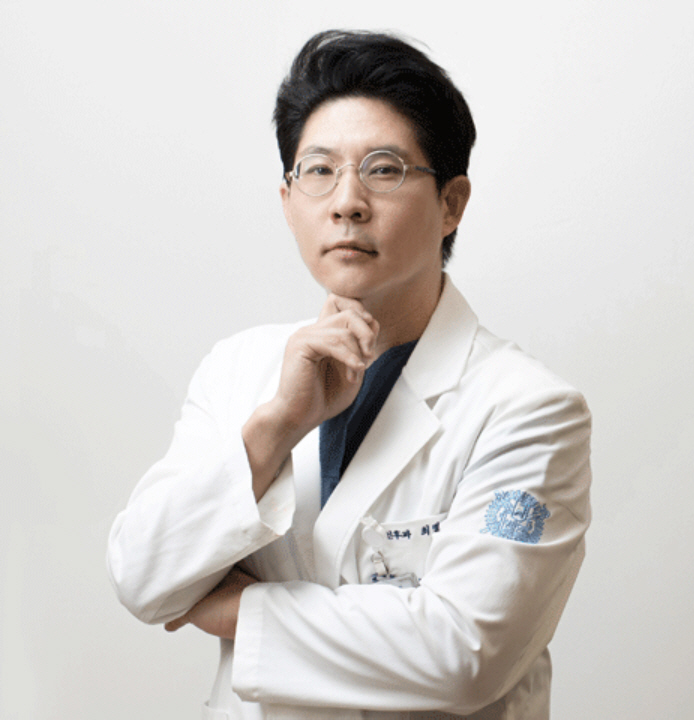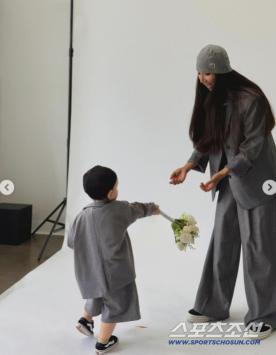Korea's first confirmation of possible treatment of hereditary hearing loss genes
Apr 18, 2025
A research team led by Professor Choi Byung-yoon of the otolaryngology department at Bundang Seoul National University Hospital (Harvard University researcher Kim Ye-ri, Regeneron Chung Yoo-jin, and senior researcher Kim Joo-ang at Bundang Seoul National University Hospital) has published the results of a study that revealed the possibility of gene therapy for the 'OTOF gene mutation' hearing loss common to Koreans.
The OTOF gene plays an important role in the transmission of sound to the nerve by 'endothelial hair cells', which detect sound in the ear, and if there is a mutation in this gene, there is a problem with this signal transmission process, resulting in hearing loss. Most of the OTOF gene mutations are caused by genetic factors, especially in Korea and Japan, it is known that certain types of mutations (p.R1939Q mutation, a type of non-cut mutation) appear relatively frequently.
Recently, gene therapy research for OTOF gene mutation hearing loss has been actively conducted in the United States and China, and interest is increasing. However, most of the studies have been conducted on patients with cleavage mutations (a form in which the gene has been completely lost), which is different from the type of non-cleavage mutations (a form in which the gene has not been completely lost but has a poor function) that is common in Korean OTOF hearing loss patients, and the research was still lacking.
Therefore, Professor Choi Byung-yoon's research team uses the latest gene therapy, the 'AAV vector gene transfer method'p.The study was conducted to investigate the therapeutic potential of patients with hearing loss with R1939Q mutation'. The research team produced a mouse model with this mutation and performed gene therapy to evaluate whether the auditory function was restored.
As a result of the study, it was confirmed that the hearing function of eight mice treated with gene therapy was restored close to normal. Five of them produced more than 90% of the 'Otoferlin protein' required to transmit sound to the nerve in endoblasts, greatly improving their hearing, and the remaining three also partially recovered their hearing function.
In addition, the research team confirmed that the restored auditory function was maintained for a relatively long period of more than 5 months even after gene therapy was performed 30 days after the age of mice, that is, human infancy. In general, hereditary hearing loss is likely to lead to permanent hearing loss if not treated quickly immediately after birth. However, this study confirms that the timing of application of gene therapy may be more flexible than expected, suggesting the possibility of treatment to more patients in the future.
Professor Choi Byung-yoon, who led the study, said, "This study is significant in that it is the first study to confirm that gene therapy can be effective even for common gene mutations in Korea and Japan. If gene therapy is successfully applied in the future, it is expected that it will open a new way to treat hearing loss without conventional hearing aids or artificial wow transplants."
Professor Choi is a world-renowned authority and auditory rehabilitation expert who has performed more than 1,500 artificial wow surgeries, and is striving to improve the quality of life of patients by identifying the genetic causes of hearing loss patients of various ages and providing customized treatment. Recently, it is also conducting leading research in the field of gene therapy, the next-generation treatment for hearing loss.
Meanwhile, the findings were published in the recent issue of the renowned international journal 『Genes and Diseases" in molecular and intermediary medicine.
The OTOF gene plays an important role in the transmission of sound to the nerve by 'endothelial hair cells', which detect sound in the ear, and if there is a mutation in this gene, there is a problem with this signal transmission process, resulting in hearing loss. Most of the OTOF gene mutations are caused by genetic factors, especially in Korea and Japan, it is known that certain types of mutations (p.R1939Q mutation, a type of non-cut mutation) appear relatively frequently.
Recently, gene therapy research for OTOF gene mutation hearing loss has been actively conducted in the United States and China, and interest is increasing. However, most of the studies have been conducted on patients with cleavage mutations (a form in which the gene has been completely lost), which is different from the type of non-cleavage mutations (a form in which the gene has not been completely lost but has a poor function) that is common in Korean OTOF hearing loss patients, and the research was still lacking.
Therefore, Professor Choi Byung-yoon's research team uses the latest gene therapy, the 'AAV vector gene transfer method'p.The study was conducted to investigate the therapeutic potential of patients with hearing loss with R1939Q mutation'. The research team produced a mouse model with this mutation and performed gene therapy to evaluate whether the auditory function was restored.
As a result of the study, it was confirmed that the hearing function of eight mice treated with gene therapy was restored close to normal. Five of them produced more than 90% of the 'Otoferlin protein' required to transmit sound to the nerve in endoblasts, greatly improving their hearing, and the remaining three also partially recovered their hearing function.
In addition, the research team confirmed that the restored auditory function was maintained for a relatively long period of more than 5 months even after gene therapy was performed 30 days after the age of mice, that is, human infancy. In general, hereditary hearing loss is likely to lead to permanent hearing loss if not treated quickly immediately after birth. However, this study confirms that the timing of application of gene therapy may be more flexible than expected, suggesting the possibility of treatment to more patients in the future.
Professor Choi Byung-yoon, who led the study, said, "This study is significant in that it is the first study to confirm that gene therapy can be effective even for common gene mutations in Korea and Japan. If gene therapy is successfully applied in the future, it is expected that it will open a new way to treat hearing loss without conventional hearing aids or artificial wow transplants."
Professor Choi is a world-renowned authority and auditory rehabilitation expert who has performed more than 1,500 artificial wow surgeries, and is striving to improve the quality of life of patients by identifying the genetic causes of hearing loss patients of various ages and providing customized treatment. Recently, it is also conducting leading research in the field of gene therapy, the next-generation treatment for hearing loss.
Meanwhile, the findings were published in the recent issue of the renowned international journal 『Genes and Diseases" in molecular and intermediary medicine.
|
This article was translated by Naver AI translator.














